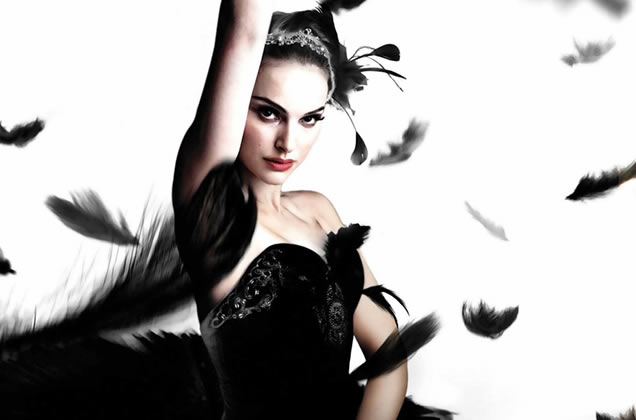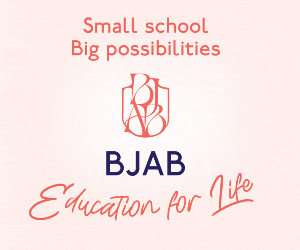The past year has been an interesting adventure for Natalie Portman. Following her marriage to long-time boyfriend Benjamin Millepied, the exquisitely beautiful actress moved to Paris last year where she has been soaking up French culture and adapting to her new world as wife, mother and Parisienne!
“I think it was destiny that brought me to live in France,” Portman says. “My father named me Natalie as an homage to a song by (legendary French singer) Gilbert Bécaud. I shot my first film with French director Luc Besson. And now I’m living in Paris with my French husband and our son and immersing myself in the language and culture. It’s very inspiring to live in Paris, I feel very lucky.”
Now 33, Portman is similarly looking to expand her film horizons by taking on more varied projects and testing herself like she never has before. One of her most interesting new films is Knight of Cups, Terence Malick’s latest avant-garde film starring Christian Bale as Hollywood screenwriter experiencing an existential meltdown in the cesspool of L.A. and Natalie Portman as his love interest.
Making its world premiere at this year’s Berlin International Film Festival, aka Berlinale, Knight of Cups was met with the kind of controversy that greets every Terence Malick film. Though some critics complained about its lack of depth, others hailed it as a stunning visual and emotional journey. Certainly, Bale and Portman deliver fascinating and compelling performances that were a mix of improvisation and planning according to Malick’s free form filmmaking technique that permeated recent films like To The Wonder and The Tree of Life.
Meanwhile, Portman, who won an Oscar for her performance in Black Swan in 2011, has recently drawn considerable attention as a ‘Miss Dior’ campaign model for the luxury goods company which recently launched a huge new international campaign.
In the daring new commercial for l’eau de Dior, directed by Anton Corbijn (A Most Wanted Man) Natalie plays a ‘Miss Dior’ bride who decides to choose freedom over matrimony by running away from her own wedding to the tune of Janis Joplin’s Piece of My Heart.
Set amid the seaside beauty of the French Riviera in the fabled Hotel du Cap Eden Roc in Cap Ferrat, the spectacularly shot film sees Portman jumping out of her heels and shedding her couture wedding gown to reveal a little black dress underneath.
In addition to Knight of Cups, Portman served as executive producer of the feature-length documentary, The Seventh Fire, about a Native American gang leader, which also made its world premiere at the Berlinale. Portman is currently editing her first feature film as a director, A Tale of Love and Darkness, a drama based on the memoir by noted Israeli author Amos Oz.
Natalie Portman lives in Paris with Benjamin Millepied, director of the ballet department of the Paris Opera, and their three-year-old son Aleph. For our chat, Natalie, campaign spokesperson for Dior, was wearing a fabulous white and black Dior dress with black heels. Her hair was darker and longer than we’ve seen of late and combed back.
Together: Natalie, you’re appearing in a very remarkable new commercial directed by Anton Corbijn. What can you tell us about that experience?
Natalie: Anton is such an exciting director to work with and is one of the boldest directors – his visual sense is extraordinary. This film is much more physical than any of the other (commercials) I’ve done for Dior and it felt like we were doing an action film in a way. But the beauty of it is what also really stands out.
Does Miss Dior offer a positive image for women?
The idea of Miss Dior was to portray this free-spirited young woman who is both independent and anxious to indulge her passions. I hope as a woman that I can also embrace in my life that same kind of spirit and passion, and that was a major reason that I wanted to be part of this campaign. The campaign is a celebration of being true to yourself and not being limited by things other people try to impose on you. There’s a message of personal freedom and expression and it’s basically saying:”Be yourself.”
Your new film, Knight of Cups, is also shot in a very avant-garde way. How was it working with legendary director Terence Malick?
It was really inspiring. He doesn’t do things in a conventional way and that’s inspiring. He makes you realise how many things in life are conventions, and he taps into magic because of the way he is able to escape rules and pre-established ways of thinking and making a movie.
I’ve been a fan of Terry’s for my whole life. Days of Heaven is my favourite film ever. He makes really incredible, impactful films, both visually and emotionally. Working with him was also a very intense experience because it was the first film I made after the birth of my son, and it was a beautiful way to get back to work.
Were most of your scenes improvized?
Much of it was but it was based on extensive notes and suggestions about the dialogue. Terry would give us a lot of different possibilities and choices in terms of the dialogue and what lines we would find most comfortable saying. There was quite a lot of discussion beforehand.
It’s a very interesting way of creating a film and it gives you a lot of freedom to be able to develop your character and experiment with your own approach to acting. Terry wants you to interpret rather than execute what he is asking you to do and that not only puts you at ease as an actor but it also pushes you to discover and use your own inspiration and ideas while you’re playing your character.
What kind of atmosphere was there on the set?
I wasn’t there as long as Christian but we both had a lot of fun on the set and we really enjoyed being able to work in a way that upsets all the conventions and usual techniques of filmmaking. It’s very liberating.
You’ve recently finished directing your first film, A Tale of Love and Darkness. Did working with Terence Malick influence your approach?
I felt very, very lucky to have worked with Terry right before I directed for the first time. He reminded me that the rules of filmmaking are not necessary and the way we do things, the rituals we have, aren’t necessary and that you can find your own way and to allow the mistakes and welcome the problems.
Working with Terry was a gift in that sense. He opens your mind and your eyes to what you can accomplish in the way you tell a story that goes beyond the dialogue and how you can create the atmosphere that is going to envelop audiences when they watch the film.
Do you feel that your life has changed a lot since moving to Paris?
It’s so interesting to plunge into another culture and experience a different way of living. The city is so rich in terms of the architecture, the bookshops you find at every corner, the way everyone dresses so well. No Parisian ever walks around in shorts and even the children look very chic (laughs).
How is your French coming along?
It’s improved a lot and I’ve been taking lessons and studying as often as I can. I feel I’m getting to the point where I’m slowly becoming more comfortable speaking French and being fluent in the language.
I’m hoping that one day I will be able to work in a French film and do the role in French. I would really love to be able to do that and I’m very motivated to get to that level.
Do you feel that becoming a mother has changed your perspective on how you see your life?
There’s a sense of greater responsibility and maturity that you develop very quickly. You know you’re beginning a new chapter in your life and it’s wonderful to watch your child grow and learn every day. I love being a mother and this a very happy time in my life. I also have a lot more confidence overall and that’s been why I decided to direct my first feature that we made in Israel last year. It’s been a big step for me and I felt honoured to tell the story based on the early years in the life of Amos Oz, who is a very respected Israeli writer and journalist and who is a major advocate of a two-state solution. It’s not a political film but it’s a story I hope will bring understanding and promote dialogue which we need to establish peace.







